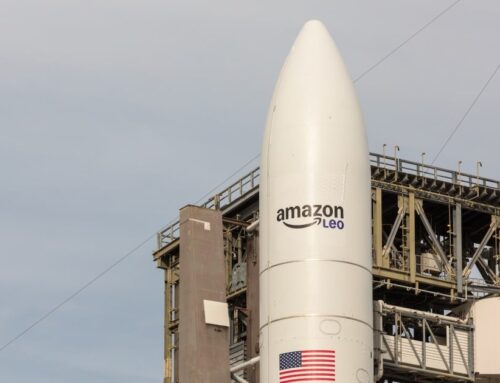Florida Bill to Restrict, Regulate Hemp Products Advances to Senate Floor
March 31, 2025
Nearly a year after Gov. Ron DeSantis vetoed legislation aiming to ban hemp products containing constituents like delta-8 THC, Florida lawmakers are upping their efforts to clamp down on the state’s cannabinoid market.
The Florida Senate Fiscal Policy Committee voted unanimously, 18-0, on March 27 to advance Senate Bill 438, which aims to prohibit all products containing hemp-derived synthetic cannabinoids, incorporate comprehensive rules for product testing, restrict where stores selling hemp products can be located and ban certain product advertising, among other regulations.
The cannabinoids that would be prohibited under the legislation include delta-8 THC, delta-10 THC, HHC, THC-O, THCP and THCV.
The bipartisan legislation, sponsored by Sen. Colleen Burton, R-Lakeland, and co-sponsored by Sen. Tracie Davis, D-Jacksonville, is on the Senate calendar this week for a full-floor debate.
“Early on in the process, when we first started talking about hemp-infused products, I would hear a lot from folks, ‘Well, it doesn’t hurt anybody,’” Burton said before the Fiscal Policy Committee vote. “I’m here to tell you it hurts people. Synthetic cannabinoids kill Floridians every year. And between 2022 and 2023, we saw a 50% increase in the number of deaths due to synthetic cannabinoids specifically.”
The 50% increase Burton was referring to was “drug occurrences in decedents,” not deaths specifically caused by synthetic cannabinoids. In 2023, cannabinoids were the cause of 32 deaths, while synthetic cannabinoids were the cause of 15 deaths, according to the Florida Department of Law Enforcement, which coordinates with the Florida Medical Examiners Commission to issue an annual report of drugs identified in deceased persons.
Burton also mentioned an increase in calls to Florida’s Poison Control Centers related to accidental ingestion of intoxicating hemp products involving children.
That increase, Burton said, was despite legislation she sponsored in 2023—and later signed by DeSantis—that amended the state’s hemp program to prohibit hemp extract products intended for human consumption from being sold to anyone under 21 years of age. That legislation passed unanimously in both chambers of the state Legislature.
In 2024, Burton sponsored similar legislation to the bill she’s proposing now; however, DeSantis vetoed last year’s legislation, stating his concern over the impacts it would have on small businesses, which he called the “cornerstone” of Florida’s economy in his veto message.
“While Senate Bill 1698’s goals are commendable, the bill would, in fact, impose debilitating regulatory burdens on small businesses and almost certainly fail to achieve its purposes,” DeSantis wrote. “Senate Bill 1698 would introduce dramatic disruption and harm to many small retail and manufacturing businesses in Florida—businesses that have emerged due to recent legislation paving the way for the commercial use of hemp.”
Some accused the governor at the time of siding with the hemp industry over cannabis, specifically with CBS News reporting that hemp executives pledged financial support to help DeSantis defeat Amendment 3, a citizen-initiated adult-use cannabis legalization amendment that he vehemently opposed leading up to the November 2024 election.
DeSantis encouraged Florida lawmakers in his veto message to engage with all relevant stakeholders and specifically consider quality control, retail sales, and labeling, marketing and packaging before taking up legislation to regulate the hemp industry in 2025.
For quality control, Burton’s latest legislation (S.B. 438) aims to require hemp extracts to be tested by a certified medical cannabis laboratory—rather than an independent lab—before it may be sold in the state. Product labels would be required to have accurate THC and CBD concentrations and ensure the absence of contaminants that are unsafe for human consumption.
Hemp products could not exceed 5 milligrams of delta-9 THC per serving or 50 milligrams per container. THC-infused beverages could not contain more than 5 milligrams per unopened can or bottle or any other sealed container.
The legislation also would restrict hemp products from being sold within 500 feet of a school or day care facility, a gas station or another hemp retailer. Also, THC-infused beverages would be prohibited from containing alcohol and could only be sold at a location licensed to sell alcoholic beverages.
Also, S.B. 438 aims to prohibit hemp retailers from advertising products in a manner that’s visible to those outside their stores. Allowable advertising and packaging could not contain wording or images that are attractive to children nor imply that products have health or medical benefits that are unsubstantiated.
“This bill takes an appropriate stance, if you will, on the regulation of products that are sold in Florida,” Burton said. “It still allows hemp-infused products to be sold, but it regulates. … I am not somebody who wants even marijuana or hemp sold anywhere, but this is not about me. The laws that we pass in the Florida Senate are not about us personally. They’re about what we can do for Floridians.”
Companion legislation, House Bill 1597, is being sponsored by Rep. Dana Trabulsy, R-Fort Pierce, in the lower chamber but has yet to receive a committee hearing.
The effective date of the legislation is Oct. 1, 2025.
Search
RECENT PRESS RELEASES
Related Post



